5 Reasons to Invest in Great Commission Companies
You’ve heard about The Great Commission—Jesus telling his followers to “Go into all the world and preach the Gospel”— and you know of many wise and courageous efforts to go into all nations through the centuries to tell the world about Jesus.
But have you heard about Great Commission companies?
Before I explain what I mean, I need to back up a little and address the elephant in the room that is blocking our view of the truth. Perhaps at the mention of fulfilling the Great Commission, your mind went to thoughts of missionaries and church planting. Then you put those thoughts in a box labeled “sacred” or “holy” or “religious” work.
Then, at the mention of the word “company,” your mind made a box of concepts like “business,” “profit,” or “investment” and labeled it “secular” or “worldly” work.
I would like to challenge you to combine the contents of those boxes and consider how money, business, profits and investments actually blend with and further the work of the Great Commission.
I have written before about the false distinction between sacred and secular, and in this post I want to add to that understanding. Legitimate businesses, operated by Jesus followers committed to living out and proclaiming the gospel within their communities and countries, can further gospel work in ways traditional missions cannot. This is especially important in areas where traditional missionaries are no longer welcome, such as in predominantly Muslim or Buddhist countries.
What are Great Commission Companies?
First, they are businesses that are real, not deceptive platforms used to gain access to a “closed country” or “creative access” location. These businesses are profitable and sustainable while also having a clear and intentional focus on facilitating the expansion of God’s kingdom “to the ends of the earth” (Acts 1:8).
Second, they are businesses focused on holistic transformation of individuals and communities through the multiple bottom lines of social, environmental, economic, and spiritual outcomes. These are sometimes called quadruple bottom lines or QBLs. Whether business owners adhere to church planting, disciple making, evangelistic, or incarnational witness strategies, they are concerned about the world’s poorest and least-evangelized peoples.
While there may be higher costs to start a business in a foreign country compared to the traditional “missionary” budget, if it is done correctly, the worker not only has legal access to the country but legitimacy in the eyes of the government and their neighbors. They also offer a model for access in the country that is far more cost efficient in the long run than the traditional missions strategy.
5 Reasons to Invest in Great Commission Companies
They have a written and calculated plan to reach profitability.
They have an outsized social impact, creating jobs and providing needed goods and services to local markets.
They have environmental impact, stewarding the earth in a way that honors our creator.
They pursue spiritual impact through the company itself. The gospel is visible and audible through the founder’s words, actions, and attitudes and in the excellence with which the company operates.
They are integral to church planting in areas where non-traditional approaches are necessary. Often these businesses become the economic engine that provide the financial ROI to investors while also sustainably funding the planting and multiplication of indigenous churches.
What this can look like: Mwana Wa Pepa
Mwana Wa Pepa, a soap and lotion company in Tanzania, has a business plan that addresses and embodies each of these five goals. In their own words:
Profitability: “MWP will supervise, monitor and evaluate all the business strategies so as to ensure growth and excelling in the market. We shall help small vendors to set their targets, hence increasing sales. Our strategic plan shall include a sustainability and succession plan for growth.”
Social Impact: “Part of our profit will be directed to support vulnerable people in the community and by this we preach the true gospel of God that pulls many to Jesus. As business expands, we shall expand to serve kids affected by malnutrition.”
Environmental Impact: “We avoid using many chemical ingredients that affect skin, hence having quality natural products. Our products are made of fruits and vegetables and roots.”
Spiritual Impact: “We transform entrepreneurs to disciples of Jesus through good acts and humanity and in that way, we build a Kingdom of God.”
Church Planting: “We will be in a position to generate income, generate more chances for vendors, and contribute to the Kingdom of God, hence improving church welfare and reducing dependence ratio from donors.”
Perhaps this last goal, reducing dependence on foreign donors, best encapsulates the blending of what has traditionally been seen as “sacred” (donations) and what has been seen as “secular” (investments). When we see God raise up an indigenous church we do not desire for them to remain impoverished, vulnerable to exploitation, or perpetually dependent on the western church for donations. Businesses that generate income provide local financial support for churches.
Multiple Winners
Combining investment strategies with intentional Great Commission Company business plans creates wins for multiple stakeholders: investors, business owners, the local church, and the community at large.
If you are interested in learning more about making investments into Great Commission companies, please talk to an advisor at our sister site, Steward Advisors Group.
